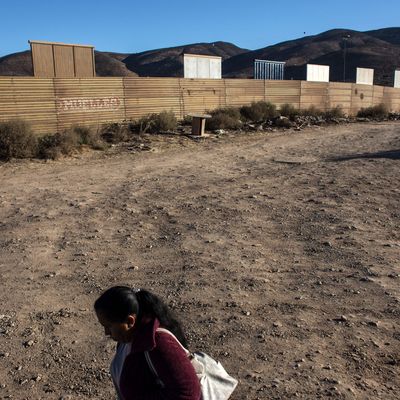
Dating back to the eve of a new fiscal year in September, Congress has passed three short-term “stopgap” spending bills, one in September, one in early December, and the latest just before Christmas. These earlier bills were mostly of a kick-the-can-down-the-road variety, dealing with controversial side issues temporarily, if at all. So now, when the supposedly final stopgap bill expires on January 19, all the chickens are coming home to roost. You can thus expect some nastiness to emerge when congressional leaders from both parties meet with Trump’s budget and legislative affairs directors this week.
A spending deal is not an optional agenda item like so many issues that are swirling around Washington (e.g., welfare or entitlement “reform” or an infrastructure package). Without the appropriations a deal makes possible, the federal government would have to shut down, and further delays without at least an agreement on spending levels (probably one that matches defense-spending increases conservatives want with comparable non-defense spending increases liberals want) probably won’t happen. There are also two red-hot non-appropriations issues with natural deadlines that make additional stopgap bills difficult: the need for a debt limit increase at some point relatively early in 2018, and the expiration of DACA protections for Dreamers in March as provided for in Trump’s September executive order ending Obama’s initiative that gave nearly a million young unauthorized immigrants a work permit and safety against deportation.
This latter issue is probably the most likely to snarl spending negotiations and raise the risk of a January government shutdown. Democrats have vowed not to provide votes for any spending deal unless some renewal of DACA is accomplished — either as part of the deal or on a separate track. House Democrats were willing to go to the mats on behalf of DACA in December, while Senate Democrats argued a stopgap bill was not the proper leverage point. The time for delay on this issue may have now ended, at least according to immigrant advocates:
“They told us Dec. 8, then Dec. 22, and now they tell us to wait until January,” Paul Quiñonez, a DACA recipient from Seattle with Washington Dream Coalition and United We Dream, told me in the Capitol on Monday….
Democratic leaders insist they have a strategy to pass a DACA fix in January.
The general lines of an achievable DACA deal have been clear for months: renewed protections for Dreamers in exchange for more money for border control. But every time a deal seems near, Trump demands border-wall funding, which is a classic nonstarter for Democrats.
“Look, I wouldn’t do a DACA plan without a wall. Because we need it,” Trump told the New York Times, repeating a position he had taken on Twitter. “We see the drugs pouring into the country, we need the wall.”
Trump is also intermittently demanding restrictive changes in the laws governing legal immigration, particularly an end to family-unification policies and visa lotteries, reportedly at the bidding of presidential adviser Stephen Miller, who may well be determined to sabotage any DACA deal that involves “amnesty,” or a path to citizenship for Dreamers.
If this pattern of behavior from the White House continues, Democrats may find it politically impossible to delay a showdown any further, and may take any spending deal hostage to DACA relief.
If the impasse over immigration policy is the most immediate problem in the spending negotiations, it’s not the only one. The December stopgap bill provided temporary money for the Children’s Health Insurance Program, but not a full year’s appropriations; conservatives are still determined to secure spending offsets for CHIP dollars. The bill also did not include House-passed emergency relief money for hurricane and wildfire recovery, thanks to objections from Senate Democrats that it was insufficient. And no progress was made in December on the Obamacare stabilization measures that a majority of senators support, and that both the president and Mitch McConnell promised Susan Collins in exchange for her vote in favor of the GOP tax bill. With the Republican majority in the Senate now down to 51–49 after Doug Jones’s election, further alienating Collins could be a bad idea.
As always, spending negotiations could attract additional hostage-takers from either or both parties who are willing to trigger a government shutdown by denying their votes to a spending bill over various demands, from abortion funding restrictions on the right to opioid research and treatment dollars on the left. And the unstable leadership from the White House won’t help.
Perhaps Congress will execute one more stopgap spending bill. But sooner rather than later, all the contentious issues preventing a year-long appropriations measure will have to be resolved one way or another, with or without a government shutdown. It’s precisely the kind of thing members of Congress would like to avoid in an election year.






























